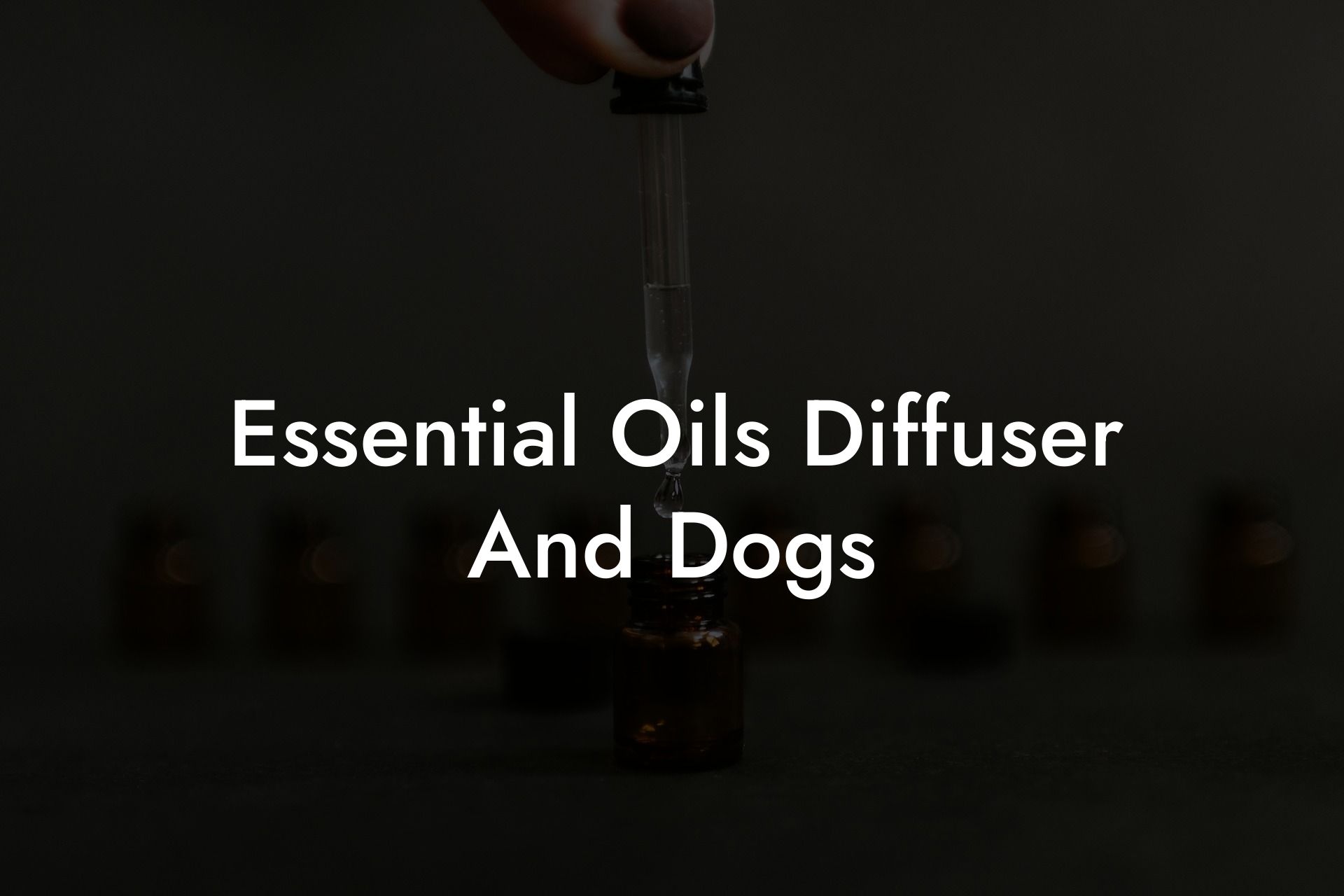Are you a dog lover who also enjoys the aromatic benefits of essential oils? If yes, then you might be wondering if using an essential oil diffuser is safe for your furry friend. In this article, we will explore the effects of essential oils on dogs and discuss precautions that should be taken when using an essential oil diffuser in a household with pets.
Table of Contents
Essential Oils and Dogs: Benefits and Concerns
Benefits of Essential Oils for Dogs
- Relaxation and anxiety relief: Just like humans, dogs can benefit from the calming effects of certain essential oils, such as lavender and chamomile.
- Pest repellent: Some essential oils, like lemongrass and citronella, can help keep fleas and ticks at bay.
- Odor neutralizer: Essential oils can be used to freshen up your dog’s living space and neutralize unpleasant odors.
Potential Risks and Concerns
- Toxicity: Some essential oils, like tea tree oil and pennyroyal, can be toxic to dogs, leading to serious health issues or even fatalities.
- Overdose: Using excessive amounts of essential oils or using them too frequently can lead to negative side effects in pets, such as vomiting, tremors, and weakness.
- Respiratory issues: Highly concentrated essential oils can cause respiratory irritation and difficulty breathing in some dogs, especially those with existing respiratory problems.
Using Essential Oil Diffusers Safely with Dogs
Choose Non-Toxic Oils
Before using an essential oil diffuser in your home, make sure to research which essential oils are considered safe for dogs. Avoid oils that are known to be toxic, such as tea tree, wintergreen, and pennyroyal. Instead, opt for dog-friendly oils like lavender, frankincense, and cedarwood.
Consider Your Dog’s Sensitivity
Every dog is different, and some may be more sensitive to essential oils than others. Older dogs, puppies, and dogs with existing health issues may be more prone to negative reactions from essential oils. Always start with a low concentration and observe your dog’s behavior for any signs of discomfort or distress.
Provide Proper Ventilation
When using an essential oil diffuser, make sure there is adequate ventilation in the room. Keep windows and doors open or use a fan to help disperse the scent. This can prevent your dog from inhaling excessively concentrated amounts of essential oil vapors, which may cause respiratory irritation.
Diffuse Oils in a Separate Room
To minimize the risk of respiratory issues, consider using the essential oil diffuser in a room that your dog does not frequently spend time in. This can help limit their exposure to potentially irritating essential oil vapors. Make sure they always have access to a safe space where they can retreat if they feel uncomfortable.
Essential Oils Diffuser And Dogs Example:
Imagine you have a golden retriever named Charlie, and you want to use essential oils to help create a calming atmosphere in your living room. You set up an essential oil diffuser on a high shelf, far from Charlie’s reach, and add a few drops of lavender oil to the water.
You open the windows to ensure proper ventilation and keep an eye on Charlie while the diffuser releases the soothing scent of lavender into the room. As the scent fills the room, Charlie appears to be calm and relaxed, showing no signs of discomfort. You continue to monitor Charlie’s behavior for any changes, allowing you to enjoy the essential oils without risking his health and well-being.
Now that you have a better understanding of using essential oil diffusers safely with dogs, you can confidently enjoy the benefits of essential oils in a pet-friendly home. Remember, always monitor your dog for any signs of discomfort and consult your veterinarian with any concerns. Be sure to share this article with other dog-loving friends who might also be interested in using essential oils safely around their canine companions. To learn more about essential oils and aromacology, explore other guides on Oshu Oils and consider trying our range of Artisan Essential Earth Oils for a balanced, holistic approach to modern living.





















